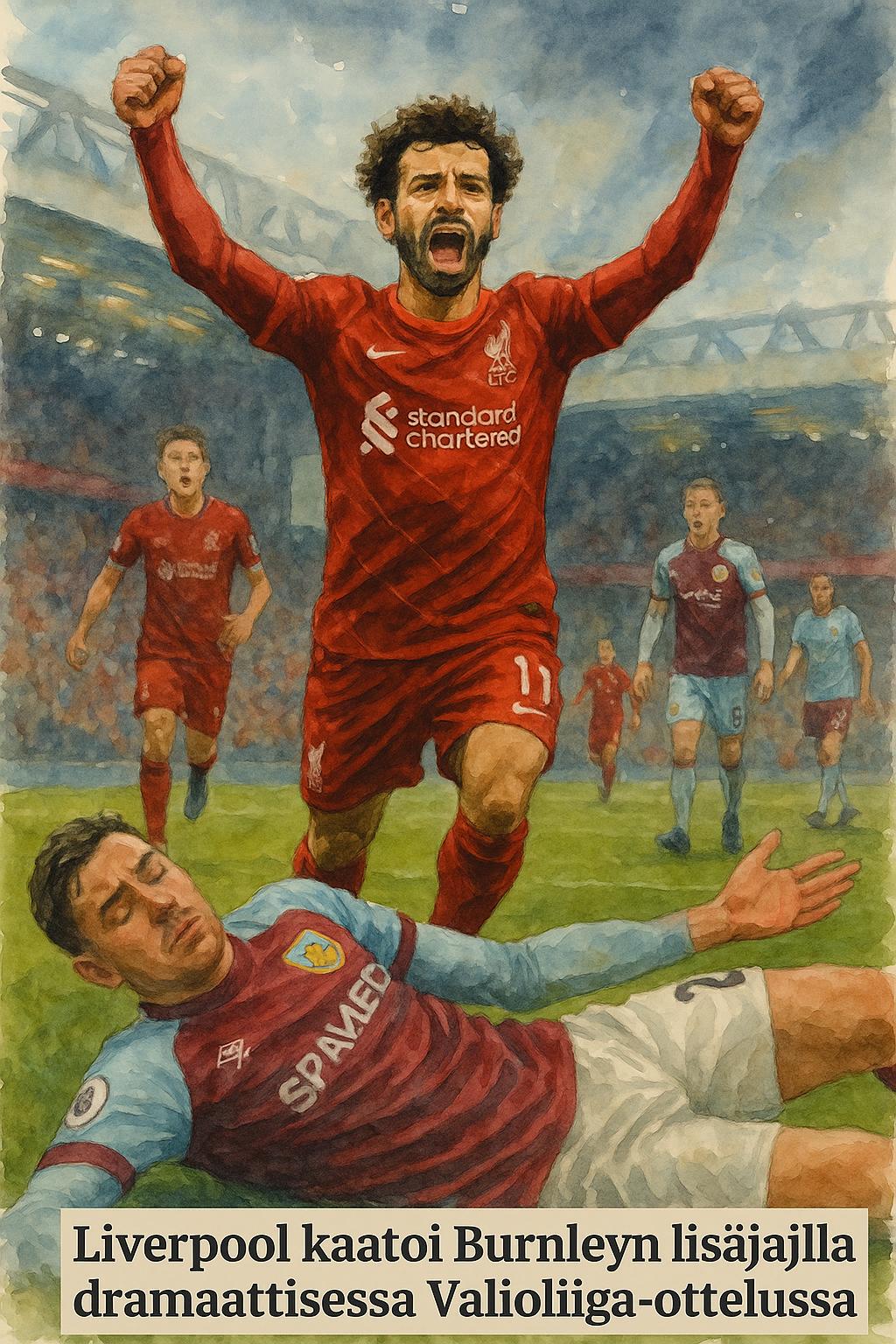Liverpool kaatoi Burnleyn lisäajalla dramaattisessa Valioliiga ottelussa
There are football nights where the game feels less like a sporting event and more like an unfolding drama. Turf Moor had that quality when Burnley hosted Liverpool, the kind of evening where every minute stretched into something monumental. On the surface, it was just another September fixture. But the reality was a pitch drenched in tension, grit, and the inevitability of heartbreak.
Burnley Builds the Wall
Burnley, freshly promoted and under no illusions about the scale of their task, planted themselves firmly in resistance mode. Their plan was survival — nothing more, nothing less. They defended in numbers, blocked shots with anything available, and transformed Liverpool’s bombardment into a siege against a medieval fortress.
Meanwhile, Liverpool’s trio of Salah, Díaz, and Núñez circled the box like hawks. Shot after shot rained in. By halftime, they had ten attempts compared to Burnley’s two, yet the scoreline sat frozen at 0–0. Frustration grew. Burnley’s Milos Kerkez seemed to revel in the chaos, clashing, baiting, and goading until Arne Slot turned to Andy Robertson as a spark to tilt things back in Liverpool’s favor.
When the whistle blew for halftime, the story felt both clear and cruel: Liverpool in control, Burnley weathering the storm — but the scoreboard belonged to neither.
The Standoff
The second half echoed the first. Liverpool’s waves of pressure slammed against Burnley’s deep defensive lines, while the home side’s desperate counterattacks fizzled almost as soon as they sparked. Time became Burnley’s real weapon; every minute survived felt like victory.
Then came the twist. In the 84th minute, Lesley Ugochukwu picked up a second yellow card. Ten men left on the field. Ten to hold off Liverpool’s siege. The atmosphere shifted. The fortress creaked.
The Moment — 90+5
And finally, in stoppage time, the collapse. Jeremie Frimpong delivered a tense cross into Burnley’s box. In the scramble, the ball clipped the hand of Hannibal Mejbri — a player who had spent the game exhausting himself in resistance, now turned into the night’s tragic figure.
The referee blew. Penalty. Turf Moor fell into silence.
Mohamed Salah stepped forward, the weight of inevitability resting lightly on his shoulders. He struck with precision. The net rippled. Liverpool 1, Burnley 0. Time: 90+5.
More Than Just Three Points
For Liverpool, the victory preserved perfection: four games, four wins, twelve points, and a place at the summit. It wasn’t spectacular, but it was what champions deliver — the kind of victory earned with sweat rather than sparkle.
For Burnley, defeat cut deep, but it was laced with pride. They had defied a superpower with courage, only undone at the very last. For 94 minutes, they had passed their test. The final minute reminded them of the cruelty of top-flight football. Yet such performances may prove valuable, the kind of lessons that shape survival campaigns.
The Aftermath
As the fans left Turf Moor, two truths existed side by side. For Burnley’s faithful, heartbreak mingled with pride. For Liverpool supporters, relief mixed with exhilaration — a reminder that their side often finds its sharpest edges when games are balanced on a knife-point finish.
History will reduce it to a line: Salah, 90+5, Liverpool win. But to those who watched, it was bigger. A story of defiance, despair, and fate, where one handball and one strike reshaped an entire night.
